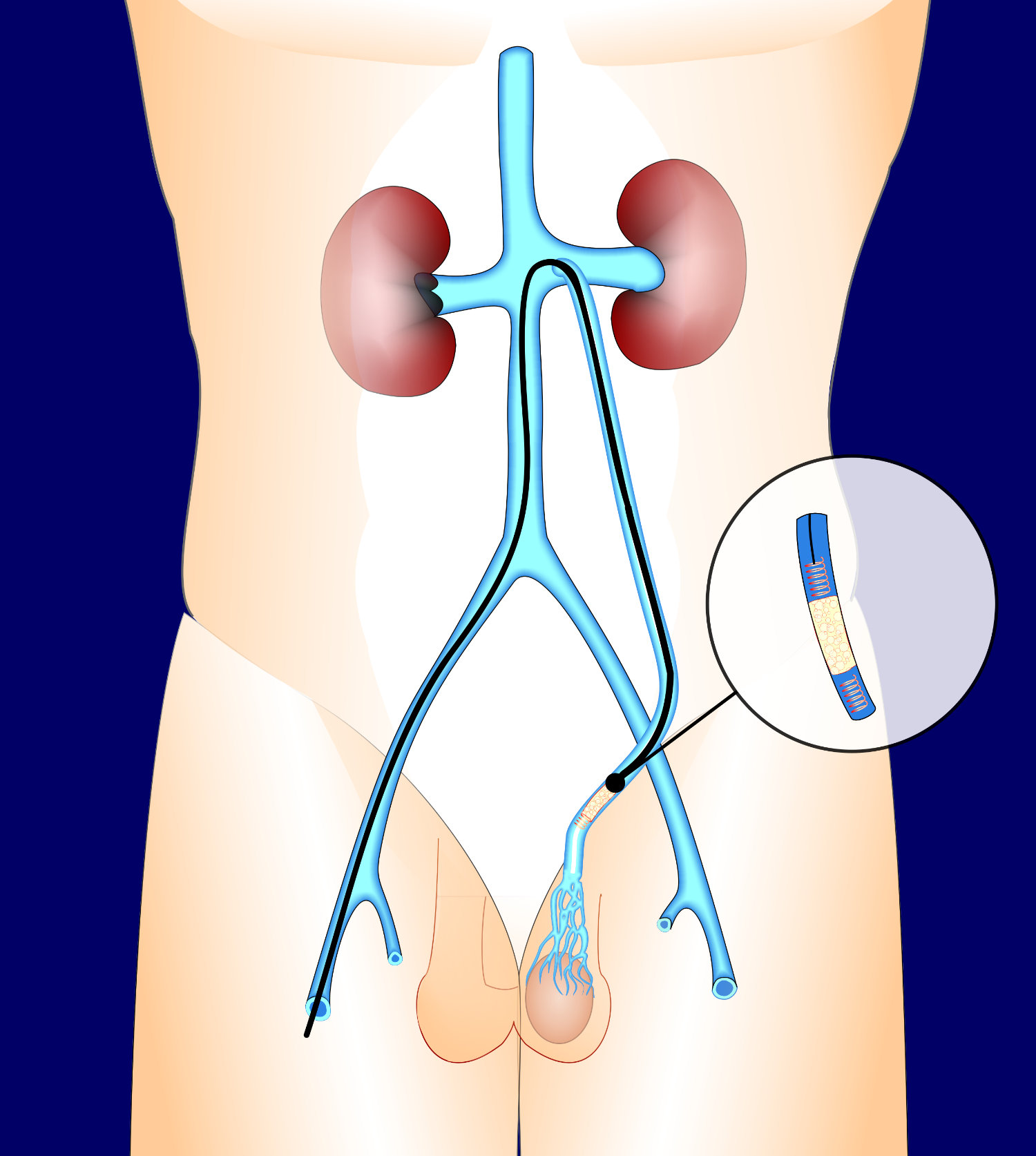Varicocele Embolization
(Condition treated: Varicocele.)
What is a varicocele and why should I worry?
A varicocele is an abnormal enlargement of veins around the testicle. They are relatively common occurring in approximately 15% of men and are commonly asymptomatic. Occasionally the distended veins can cause pain, there is some evidence that it can affect sperm quality and fertility although this is not universally accepted. Varicoceles can be found in up to 40% of infertile couples and may be contributory factor. Varicoceles are commonly located on the left side and can be felt, often being described as a ‘bag of worms’. A right sided varicocele is less common and when seen in isolation should be evaluated by a medical professional.
When does varicocele need to be treated?
Treatment is recommended to improve pain or discomfort.
I have a varicocele but no pain or fertility problems. Should I have this treated?
In general, there is no need to treat asymptomatic varicoceles. We recommend checking with your GP or urologist as in rare cases a varicocele can indicate the presence of more serious underlying pathology.
How is the procedure performed?
The procedure is performed with ultrasound and specialized x-ray (angiography) equipment. A small 1-3mm nick in the skin is made to access a vein either in the groin or neck and a plastic catheter is then guided to the varicocele via x-ray guidance. The varicocele is sealed from the inside with a combination of specialized coils and drugs which work locally in the abnormal veins.
Is the procedure uncomfortable?
The procedure generally well tolerated and is routinely performed with a combination of local anaesthetic and sedation. Patients may notice some minor discomfort for a few days to weeks following the procedure, persistent pain is extremely rare and may not necessarily relate to the varicocele procedure.
I am trying to start a family. Is this related to infertility?
Infertility is a complex problem and may relate to a large range of factors related to either male or female partners or both. The role which varicoceles play in the setting of infertility is debated. In couples with infertility the prevalence of varicocele is felt to be higher than average. In addition, the presence of varicocele is associated with reduced sperm quality and there are some papers which suggest treating a varicocele improves sperm quality in up to 75% of cases. Whilst these papers may appear encouraging, many of them lack adequate control groups to account for other factors such as improved diet or other unidentified variables which may alternatively account for the improved sperm quality seen.
Does improved sperm quality following varicocele treatment lead to a higher chance of babies? The answer is debated. A large review [http://www.cochrane.org/CD000479/MENSTR_surgery-or-embolization-for-varicoceles-in-subfertile-men] published in 2021 suggested that couples with otherwise unexplained infertility may derive some benefit in pregnancy rates if they underwent varicocele repair. The reviewers aimed to evaluate the effect of both embolization and surgical treatment of varicoceles. Whilst some of their findings were encouraging, suggesting that treatment may improve fertility, the effect was not definitive enough to completely exclude other factors such as study biases or statistical effects. Ultimately the reviewers felt the data was not of quality to come to a definitive conclusion at the time of writing.
We strongly recommend all couples with difficulties conceiving consult with a fertility specialist as this is a complex medical problem with a variety of causes which is best treated with a dedicated medical practitioner.
How effective is embolization?
The technical success rate is in excess of 90% for embolization.
What happens after the procedure?
We recommend bed rest for two hours following the procedure. You can be discharged on the same day but will need to arrange someone to stay with you for the remainder of the day as you cannot drive for 24 hours after sedation. You will be prescribed medications to manage any back or scrotal pain which can occur temporarily after embolization.


